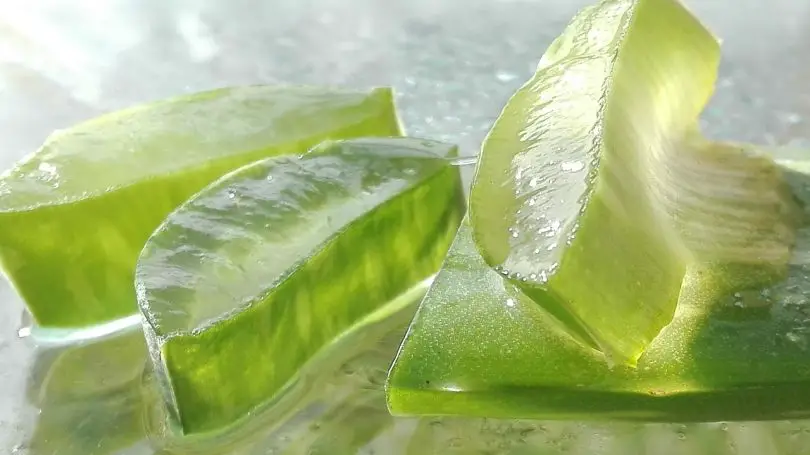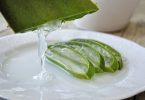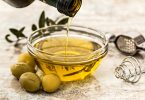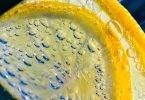Looking for a cleaner that can combat germs while being gentle on your skin and the environment? Look no further than the power of natural antibacterial plants. These plants possess potent properties that can help keep your home clean and fresh, without the need for harsh chemicals.
From the soothing scent of lavender to the invigorating qualities of eucalyptus, there is a wide array of options to explore. So, why not discover the wonders of these natural germ-fighters and unlock a world of cleanliness that is both effective and sustainable?
Lavender: Nature’s Germ Fighter
Lavender is a powerful antibacterial plant that can naturally combat germs and promote cleanliness. Its strong antibacterial properties make it an excellent choice for keeping your surroundings clean and germ-free. Lavender essential oil, derived from the flowers of the lavender plant, contains compounds that have been proven to kill bacteria and inhibit their growth. By using lavender essential oil as a natural cleaning agent, you can effectively eliminate harmful bacteria without resorting to harsh chemicals.
Simply dilute a few drops of lavender oil in water and use it to clean surfaces, floors, or even your laundry. Not only will lavender help kill germs, but it will also leave behind a pleasant and calming fragrance. Its natural antibacterial properties make it a great addition to your cleaning routine, allowing you to maintain a healthy and hygienic environment.
Tea Tree: The Ultimate Antibacterial Plant
With its unparalleled antibacterial properties, tea tree is truly the ultimate plant for fighting off germs and maintaining cleanliness. Tea tree oil, derived from the leaves of the tea tree plant, has been used for centuries as a natural remedy for various ailments. Its antibacterial qualities make it a valuable addition to any cleaning routine.
Tea tree oil is known for its ability to kill a wide range of bacteria, including those that cause infections and illnesses. It has been shown to be effective against common bacteria such as E. coli and Staphylococcus, as well as antibiotic-resistant strains like MRSA. By using tea tree oil in your cleaning products, you can ensure that your home is free from harmful bacteria.
In addition to its antibacterial properties, tea tree oil also has antifungal and antiviral properties. This means that it can help to prevent the growth of fungi, such as mold, and can even help to reduce the symptoms of viral infections. By incorporating tea tree oil into your cleaning routine, you can create a healthier environment for you and your family.
To use tea tree oil for cleaning, simply add a few drops to water or a carrier oil and use it to clean surfaces, floors, and even laundry. You can also use it in a diffuser to purify the air in your home.
With its natural antibacterial properties, tea tree is truly the ultimate plant for keeping your home clean and germ-free.
Eucalyptus: A Natural Cleansing Powerhouse
Eucalyptus, renowned for its natural cleansing properties, is a powerhouse when it comes to keeping your home clean and fresh. With its invigorating scent and antibacterial properties, eucalyptus is a popular choice for natural cleaning solutions. This versatile plant can be used in various ways to tackle dirt, germs, and odors.
One of the easiest ways to harness the cleaning power of eucalyptus is by using eucalyptus essential oil. Simply mix a few drops of the oil with water in a spray bottle and use it to clean surfaces like countertops, floors, and bathroom fixtures. The antibacterial properties of eucalyptus oil help to kill germs and prevent the spread of bacteria.
Eucalyptus leaves can also be used to make a DIY cleaning solution. Boil a handful of leaves in water, let it cool, and strain the liquid. This homemade eucalyptus cleaner can be used to mop floors, wipe down surfaces, or freshen up your laundry.
Furthermore, eucalyptus can be added to your laundry routine to give your clothes a fresh and clean scent. Simply place a few eucalyptus leaves or a few drops of eucalyptus oil in a muslin bag and add it to your washing machine.
Rosemary: Aromatic Antibacterial Wonder
Rosemary, known for its aromatic scent and antibacterial properties, is a powerful natural cleaner. When it comes to keeping your home clean and free from harmful bacteria, rosemary can be a great addition to your cleaning routine. Not only does it smell delightful, but it also has the ability to kill bacteria and keep your home fresh and clean.
One of the main reasons why rosemary is such an effective antibacterial plant is because of its high concentration of essential oils. These essential oils contain compounds that have been proven to have antibacterial properties, making rosemary a natural and safe alternative to chemical-based cleaners.
To use rosemary as a natural cleaner, you can make a simple homemade spray by steeping rosemary leaves in hot water and then straining the liquid into a spray bottle. This homemade rosemary spray can be used on various surfaces, such as countertops, cutting boards, and bathroom fixtures, to kill bacteria and leave a fresh scent behind.
In addition to its antibacterial properties, rosemary also has antioxidant and anti-inflammatory properties, making it a versatile and beneficial herb for overall health and wellness.
Peppermint: Refreshing and Germ-Fighting
Peppermint is a refreshing and germ-fighting plant that can be a valuable addition to your cleaning routine. Its invigorating scent and antibacterial properties make it an excellent natural option for keeping your home clean and fresh.
One of the key benefits of peppermint is its ability to fight germs. It contains a compound called menthol, which has antimicrobial properties that can help kill bacteria and other harmful microorganisms. By incorporating peppermint into your cleaning routine, you can effectively eliminate germs and create a healthier living environment for you and your family.
In addition to its germ-fighting properties, peppermint also has a refreshing aroma that can help uplift your mood and create a pleasant atmosphere in your home. Its invigorating scent can boost your energy levels and provide a sense of mental clarity. Simply adding a few drops of peppermint essential oil to your cleaning solutions or diffusing it in your living space can help create a clean and revitalizing environment.
Furthermore, peppermint can also act as a natural insect repellent. Its strong scent repels ants, spiders, and other pests, making it a safer alternative to chemical-based insecticides.







